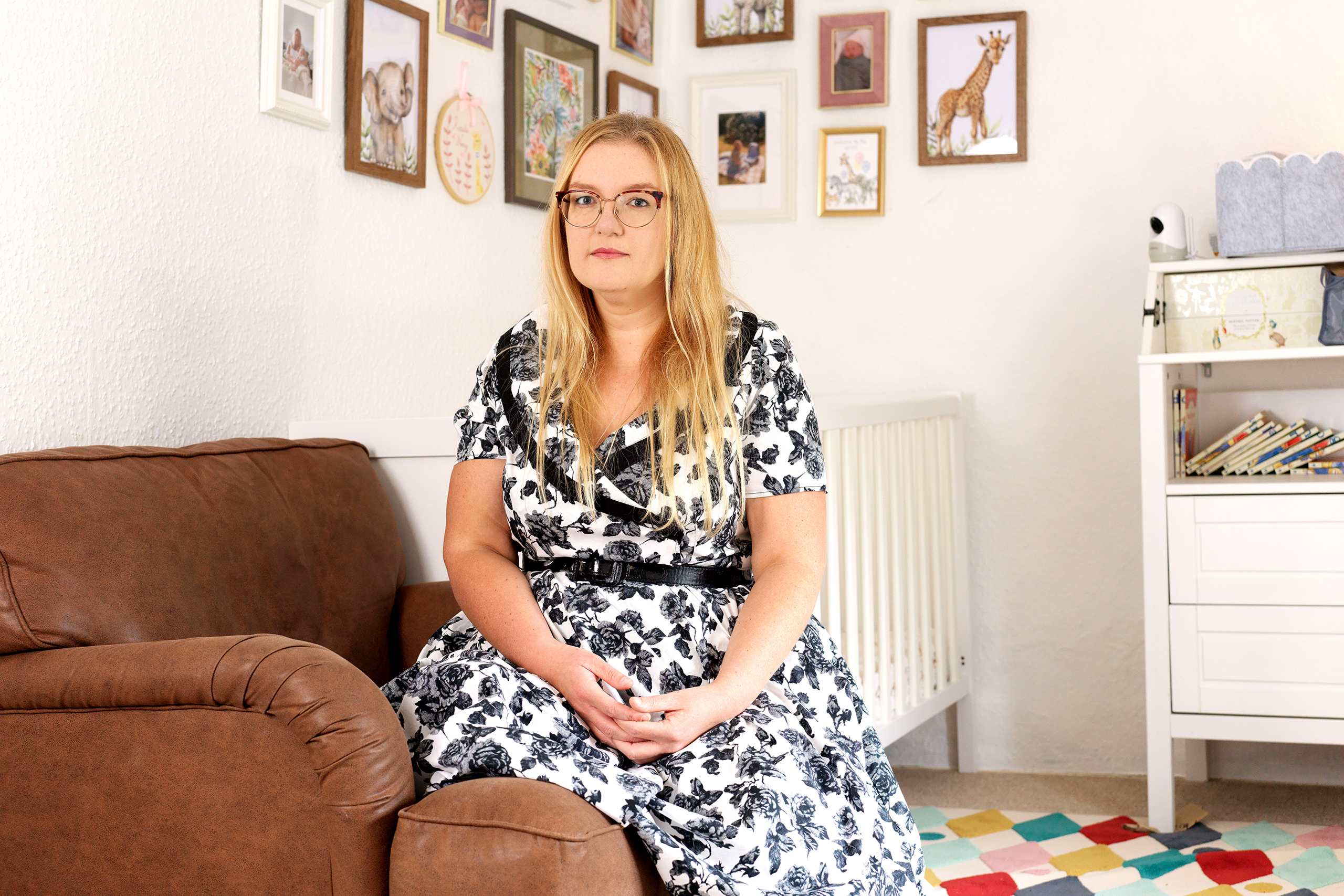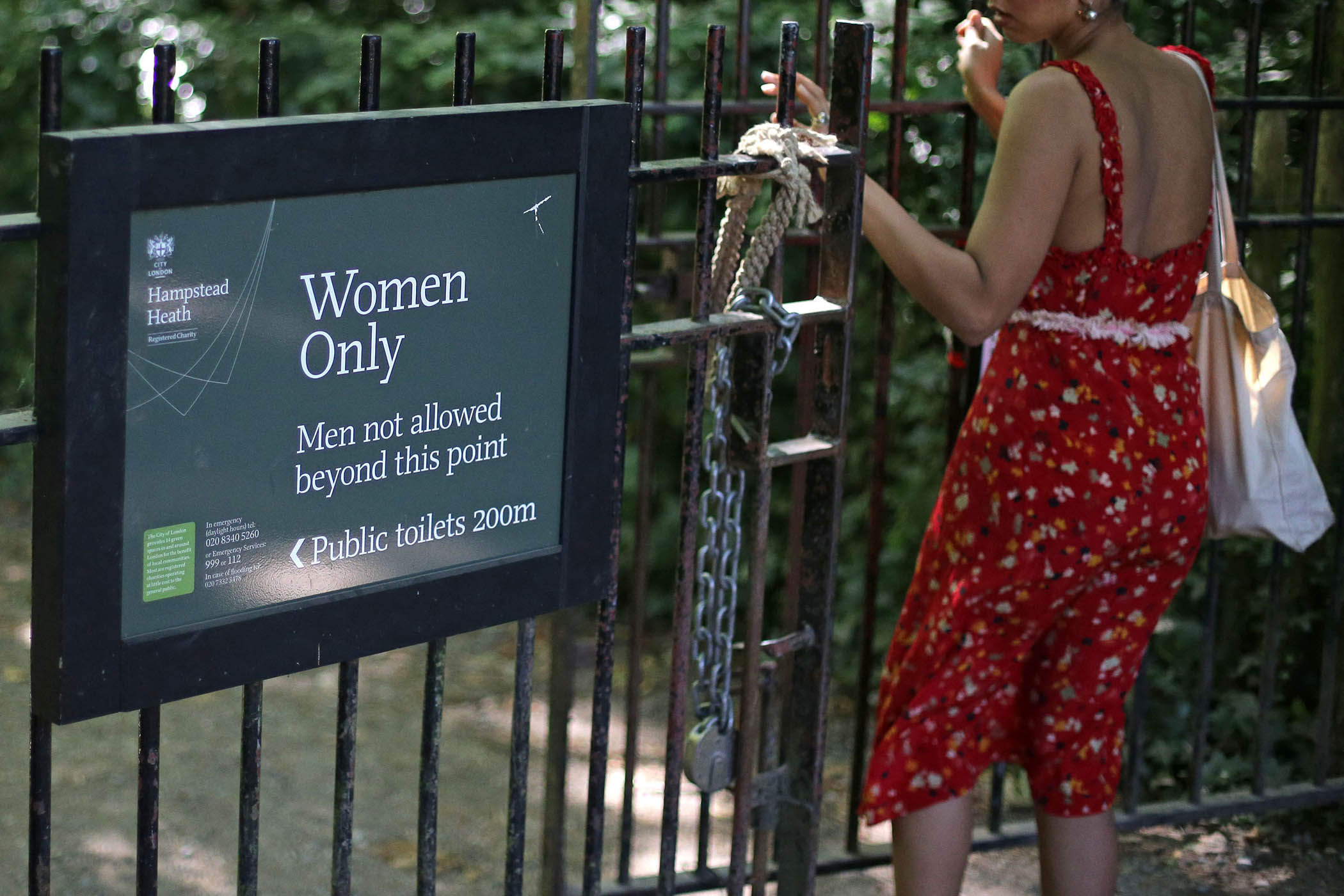When Emily Barley went into labour at 4am on 20 May 2022, the pain hit her “like a train”. By the time her daughter Beatrice was born 17 hours later, the baby’s heartbeat had stopped after a series of catastrophic errors by doctors and midwives at Barnsley hospital.
“I begged for a caesarean – I wanted her out. I thought maybe there would be a chance to resuscitate her, but it was refused,” Barley says. “It was the most incredible moment of my life – she was beautiful, she was absolutely perfect – but it was the worst moment as well, because she was dead. I don’t think I really believed that she would be until I held her.”
Barley, 36, does not know at precisely what time her daughter died. “There were around 20 minutes when they were monitoring my heart rate instead of hers and another 45 minutes when there was a loss of contact – they got snapshots of [the baby’s] heartbeat then nothing. Instead of being suspicious and concerned and taking steps to make sure she was OK, they assumed it was a faulty machine.”
She told staff she felt something was wrong but her fears were repeatedly ignored. “The problem wasn’t staff shortages. I had three midwives and two doctors in the room for the last 45 minutes, and none of them were doing their jobs,” she said. “They were complacent and dismissive. Right from the beginning, I was judged as being a drama queen, a first-time mum who couldn’t cope.”
Barnsley hospital has apologised and promised to improve its training and risk assessment procedures but Barley thinks the problems go wider. “There’s a narrative around nurses, midwives and doctors being angels or gods which I feel they’ve internalised,” she said. “They think: ‘We are good people who try very hard, so we can’t possibly be wrong.’”
Related articles:
Childbirth is messy, painful and often dangerous, but something has gone seriously wrong with maternity care in the NHS. Wes Streeting, the health secretary, says it is the aspect of his job that has shocked him the most since going into government. He has ordered a rapid review to report next month and will chair a taskforce to implement its recommendations.
Last year, the Care Quality Commission found that more than two-thirds of maternity services in England were “inadequate” or “requiring improvement” for safety.
Scandals have swept through maternity services in East Kent, Morecambe Bay, Shrewsbury and Nottingham, but these are not isolated cases. Over the past five years there has been a 19% rise in postpartum haemorrhage, a 27% increase in complications of anaesthesia during labour or delivery and a 65% rise in failed inductions.
The death rate among babies has fallen by 22% in a decade but the maternal mortality rate has increased by 42%. There are stark inequalities in outcomes. Black women are more than twice as likely to die in childbirth as white women.
‘The midwives and doctors were dismissive and complacent. From the start I was judged as being a first-time mum who couldn’t cope’
Emily Barley
The NHS is spending almost as much on compensating families for clinical negligence in maternity services as it is on maternity care itself. Last year, the annual cost of harm relating to maternity services was £2.5bn and the budget for care was about £3bn.
The total government liability for clinical negligence claims (which includes estimates of future payments stretching across several years) is now £60bn, up from £14.4bn in 2006-7. Of this, £37.5bn relates to maternity care.
And of course behind every statistic lies a human tragedy. Each year, hundreds of families experience bereavement or trauma as a result of mistakes that could have been avoided. Many more mothers who give birth to a healthy baby describe suffering from post-traumatic stress disorder as a result of poor maternity care.
The NHS is under pressure but the crisis in maternity services is not driven primarily by a lack of resources – it is about culture. Between 2013 and 2023, the number of midwives increased by 11% and obstetricians rose by 46% at the same times as births fell, yet provision has deteriorated.
The lines of accountability in maternity care are unclear – units are run by midwives, but when something goes wrong they have to call in doctors. As well as a dual power structure, there is a tension between the priorities of the two professions. Midwives prefer “natural” births while clinicians are quicker to turn to medical interventions. The hierarchical nature of the health service compounds the problem.
Meanwhile a flawed compensation system encourages the NHS to close ranks when something goes wrong. Clinical negligence claims for failings in maternity care can total millions of pounds – the average compensation cost for cases involving cerebral palsy or brain damage is £11.2m and the highest payment exceeded £40m, representing a lifetime of care and lost earnings for a severely brain-damaged baby. In a bizarre anomaly, the wealthiest parents get the biggest settlements because the system assumes that their child would have been more likely to go on to be a high earner.
The stakes are high and the legal nature of the process means the claimant has to prove negligence to get an award. That makes it hard for doctors and midwives to admit to, and therefore learn from, mistakes or for the NHS to improve its processes.
Complaints to the parliamentary and health service ombudsman related to maternity services have increased by 88% over the past five years and there has been a quadrupling of those upheld. Paula Sussex, the ombudsman, said there is a recurrent theme of “poor communications”, “defensiveness” and a “hierarchical environment” in the NHS. “Sometimes, quite horrifyingly, that leads to cover-ups,” she said.
Inquiries at Morecambe Bay and East Kent both highlighted the culture of deflection and denial. Three years ago, senior midwife Donna Ockenden published a scathing indictment of maternity services in England. Her independent review found that disastrous failings at the Shrewsbury and Telford hospital trust had contributed to the deaths of more than 200 babies and laid bare a culture of bullying, anxiety and fear of speaking out. She is now heading an inquiry into maternity care in Nottingham, with more than 2,400 families involved.
“We’ve had so many excellent reports about maternity services over the years, and so little is done with the findings,” Ockenden said. “There is still a failure to listen to families and believe them. Women frequently report to me that when they raise concerns or make a complaint, up goes a brick wall. The way many parts of the NHS treat a family after something’s gone wrong continues to compound the harm.”
She is frustrated that the “immediate essential actions” she said were required in her 2022 report have still not all been implemented. “They were fully accepted by the government at the time, and I’m really disappointed that such limited progress has been made. We know what needs to happen. We need now to dig deep and get on with what needs to be done.”
Merope Mills, whose daughter Martha died from sepsis in hospital in 2021 after her concerns were ignored by doctors, sees a similar pattern of “arrogance and a toxic culture” in maternity care. “The doctors and midwives disagree and fight over power. In the end, women and babies are caught in the middle, and many die or sustain life-changing injuries. I’ve heard too many horror stories of women not being listened to when their instinct tells them something is wrong.” Martha’s rule – which gives families the right to request a second opinion – is now being trialled in maternity units in 14 hospital trusts.
Jeremy Hunt, the former Conservative health secretary, says the biggest problem is the “blame culture” in the NHS. “People worry they will be scapegoated if they’re open about a mistake they made,” he said. “From the family’s point of view, their best friend is the lawyer, whereas it should be the NHS who is rallying around someone who is bereaved or had a severely disabled baby.”
He believes a no-fault compensation scheme, which awards payments to families when something goes wrong without apportioning blame, would encourage the NHS to learn from its mistakes. When a similar system was introduced in Japan for cerebral palsy cases, the number of lawsuits halved because fewer babies were harmed.
James Titcombe, the patient safety campaigner whose son Joshua died in 2008 just nine days after he was born, points to the airline industry, which dramatically improved safety by encouraging staff to report errors without fear of punishment. “In the NHS there’s a lot of fear. We haven’t got a culture where people can feel safe to be open and transparent,” he said. “It’s all about doing what they can to deny legal accountability, which sadly gets in the way of learning. Families at their moment of greatest need, when this terrible thing has happened to them, get tortured by a system that doesn’t give them the answers. It denies and it defends.”
Photograph by Karen Robinson for The Observer



